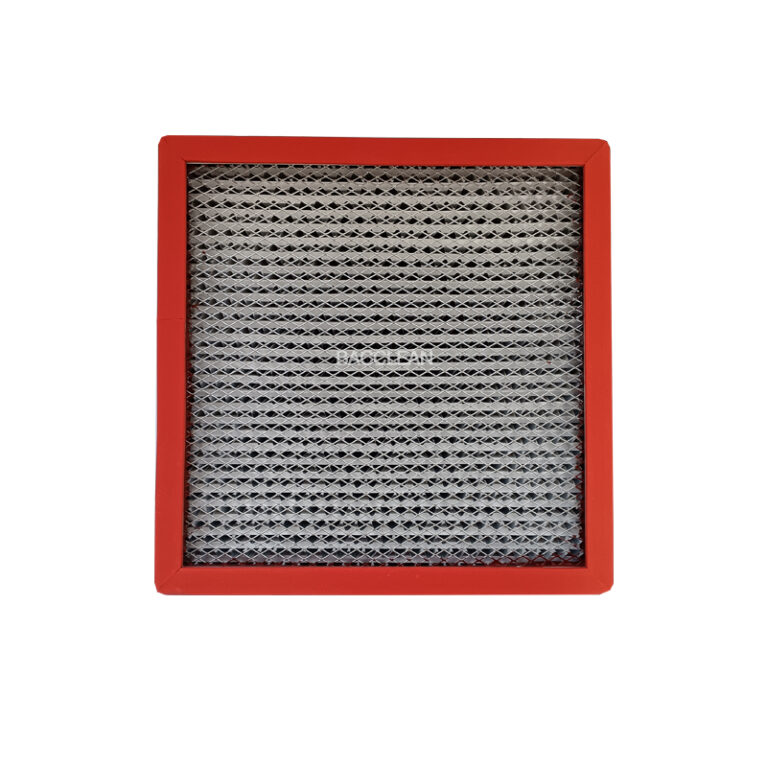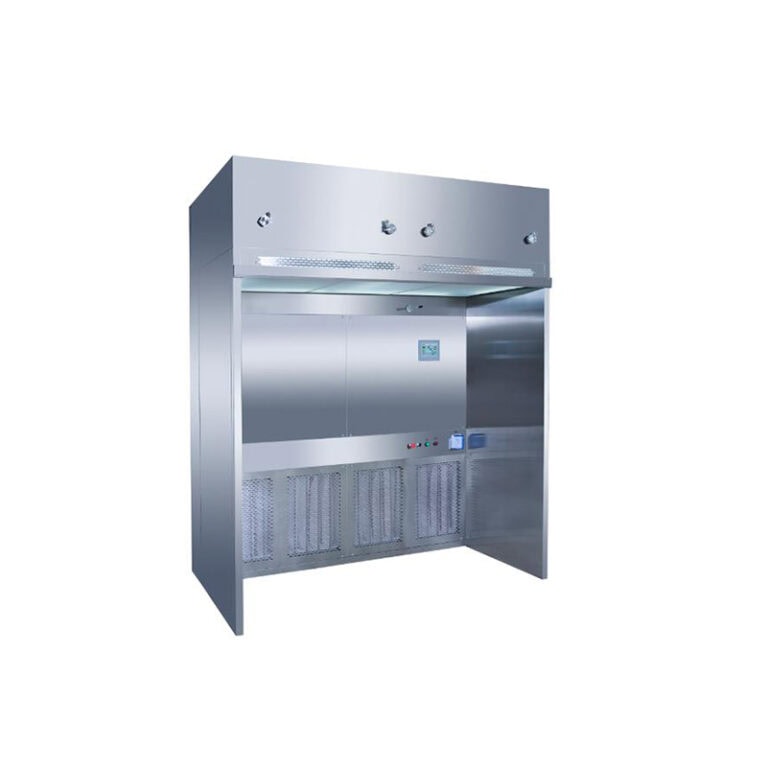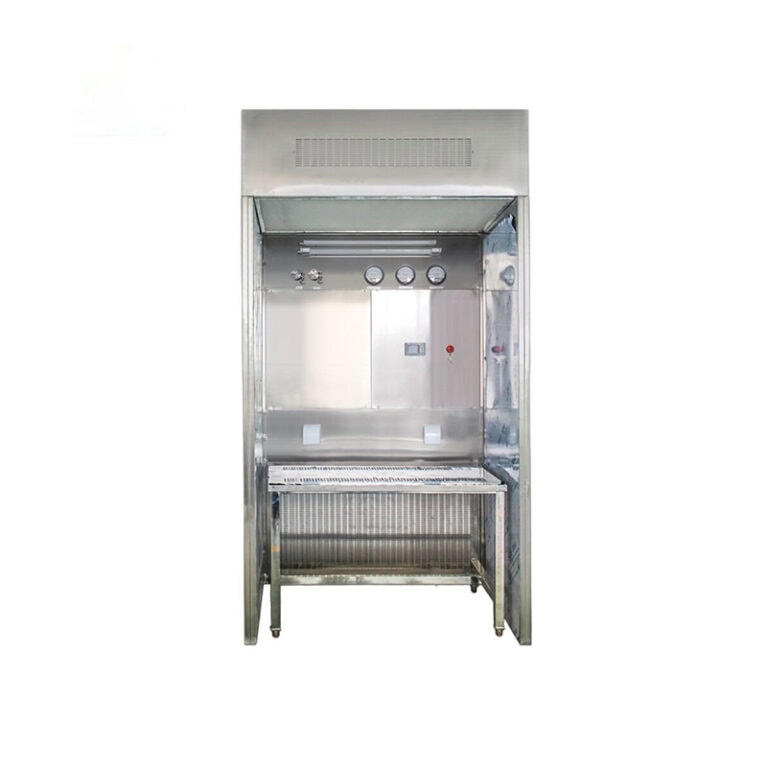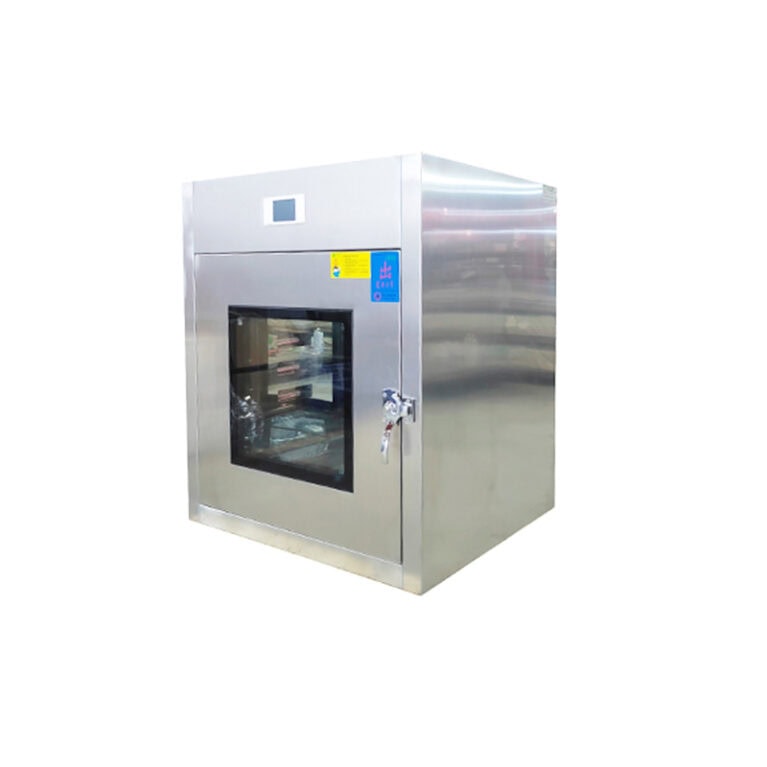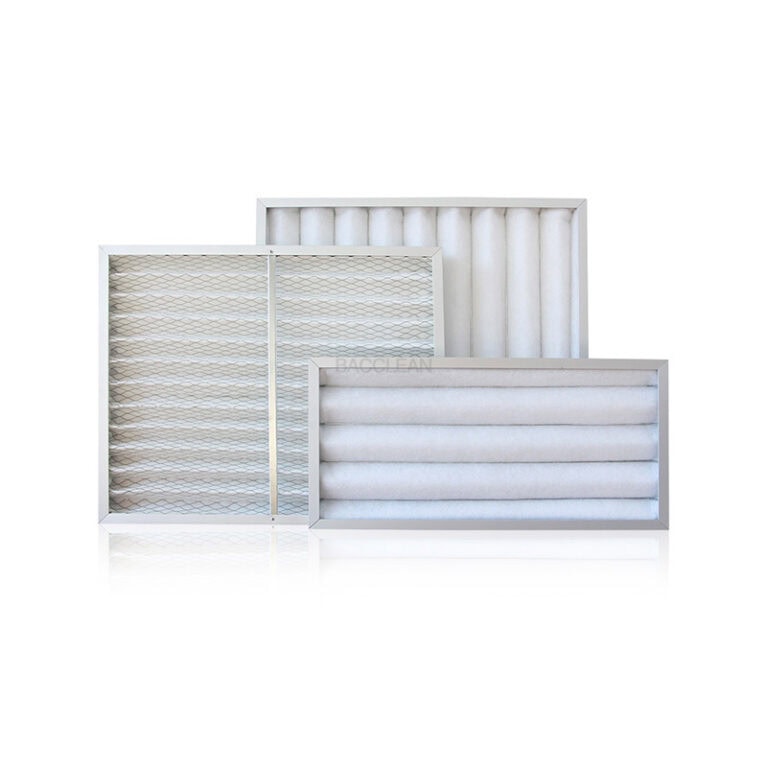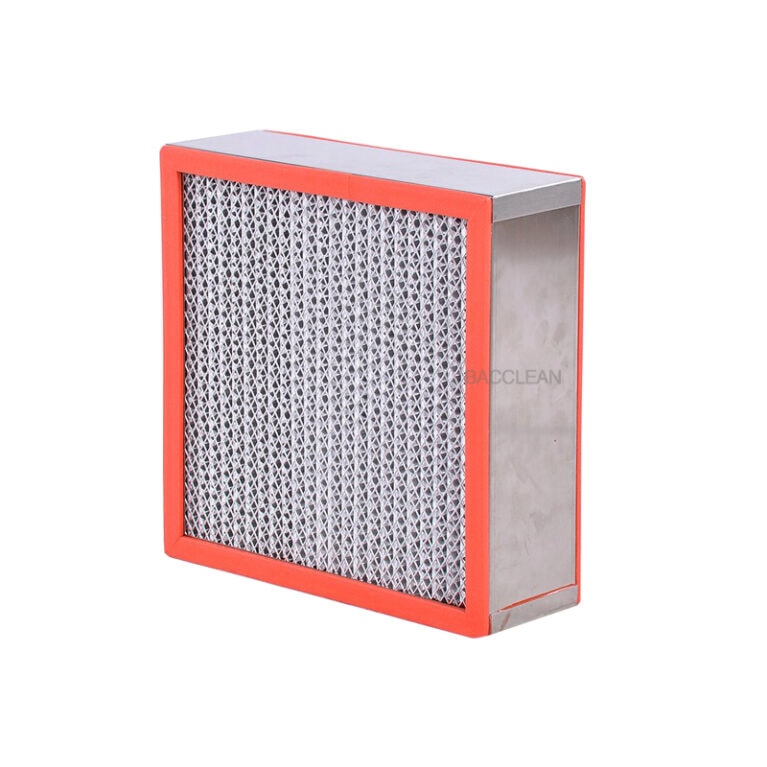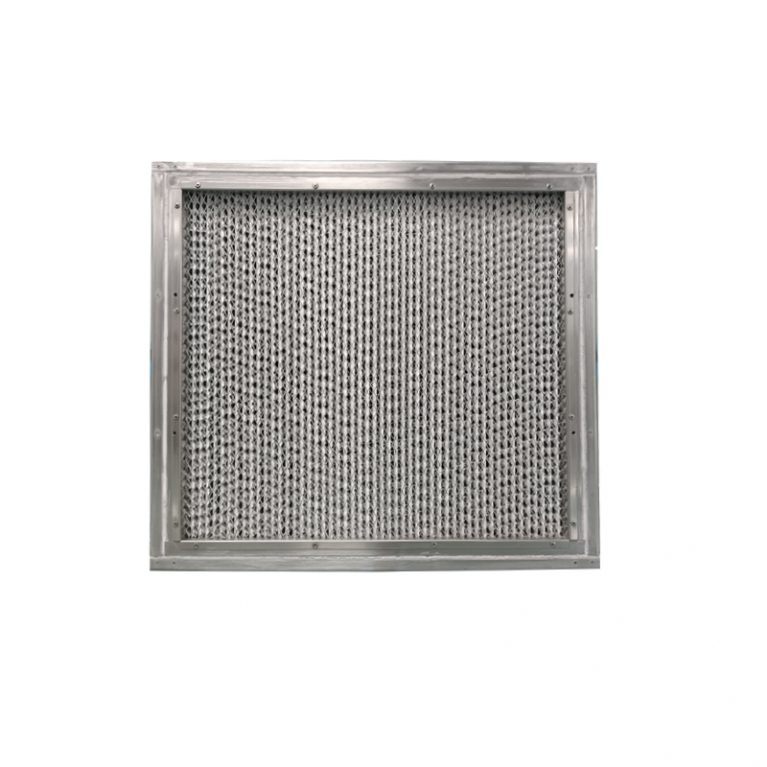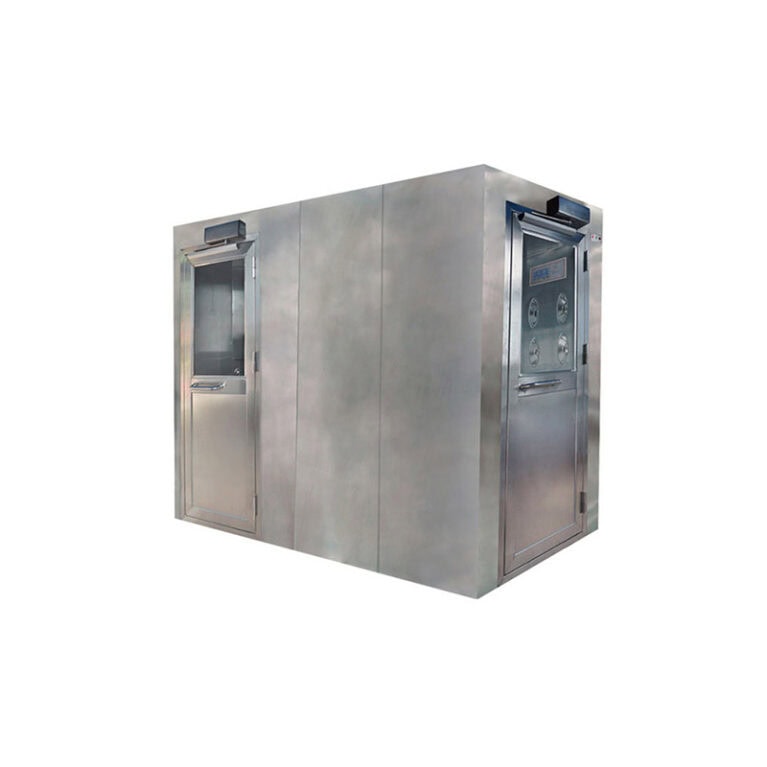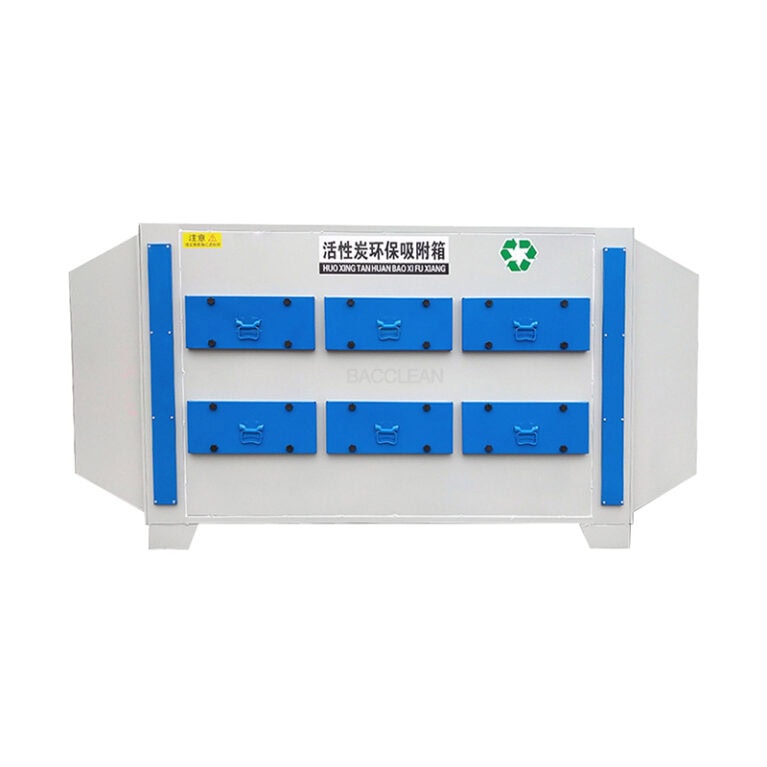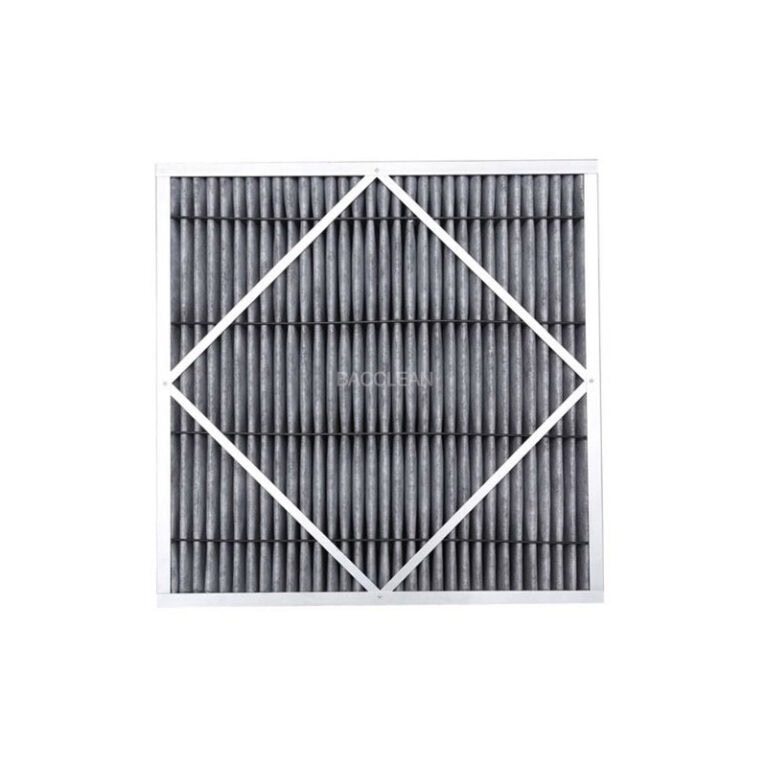FFU filters (mainly referring to HEPA or ULPA high-efficiency filters) are core purification components. The timing of their replacement should be determined based on the actual usage conditions. If the filtration efficiency decreases or the resistance is too large, it will directly affect the cleaning effect and equipment energy consumption. The following are the specific methods and bases for judgment:
I. Core Judgment Indicators: Resistance Change The resistance of the filter (air pressure) is the most intuitive basis for judgment, which is divided into “initial resistance” and “final resistance” :
Initial resistance: The air flow resistance when the filter is brand new (determined by the type and material of the filter. Generally, the initial resistance of HEPA is about 100-200Pa, and that of ULPA is higher).
Final resistance: The resistance of the filter when it reaches the designed replacement threshold, usually set at 1.5 to 2 times the initial resistance (for example, if the initial resistance is 150Pa, replacement is required when the final resistance reaches 225 to 300Pa).
Operation method
Regularly monitor the pressure difference before and after the filter through the built-in differential pressure gauge of the FFU (or an external differential pressure gauge). When the reading reaches the preset final resistance, it indicates that the filter is severely clogged and must be replaced.
Ii. Auxiliary Judgment Basis: Even if the resistance does not reach the final resistance when the cleanliness does not meet the standard, replacement should also be considered if the following situations occur:
The particle counter failed the detection. If the concentration of particles above 0.3μm (HEPA) or 0.12μm (ULPA) continuously exceeds the design standard (for example, Class 100 requires no more than 100 0.5μm particles per cubic foot) when sampling the air in the cleanroom with a laser particle counter, And after ruling out other factors (such as air leakage during FFU installation or fan failure), it might be caused by the efficiency decline or damage of the filter.
Visual contamination: When disassembling the FFU for inspection, if there are obvious stains or damages on the surface of the filter (such as torn filter paper or fallen sealant), or if dust overflows from the air outlet surface, it indicates that the filter has failed and needs to be replaced immediately.
Iii. Reference Replacement Cycle (in combination with the Environment)
In the absence of monitoring equipment, a rough estimate can be made based on the dust concentration of the usage environment:
High-cleanliness environments (such as semiconductor workshops, operating rooms) : The front-end pretreatment is complete (with all primary and medium-efficiency filters), the filter load is low, and it is generally replaced every 6 to 12 months.
Moderately polluted environments (such as food processing workshops and general laboratories) : There is a lot of dust or microorganisms, and they are usually replaced every 3 to 6 months.
High-pollution environments (such as workshops without pretreatment or direct entry of external air) : Filters are prone to clogging and may need to be replaced every 1 to 3 months.
Iv. Precautions
The filter cannot be reused after cleaning: The filter paper of HEPA/ULPA is of ultra-fine fiber structure. Cleaning it will damage the filter layer, causing a sudden drop in efficiency.
When replacing, it is necessary to check the installation sealing: The new filter should be well sealed with the box to prevent unfiltered air from leaking through the gap and affecting the cleaning effect.
In conclusion, resistance compliance and cleanliness testing are the scientific basis for determining the replacement of FFU filters. Only by combining the environmental dust conditions and regular inspections can the filtration efficiency always meet the requirements.
I. Core Judgment Indicators: Resistance Change The resistance of the filter (air pressure) is the most intuitive basis for judgment, which is divided into “initial resistance” and “final resistance” :
Initial resistance: The air flow resistance when the filter is brand new (determined by the type and material of the filter. Generally, the initial resistance of HEPA is about 100-200Pa, and that of ULPA is higher).
Final resistance: The resistance of the filter when it reaches the designed replacement threshold, usually set at 1.5 to 2 times the initial resistance (for example, if the initial resistance is 150Pa, replacement is required when the final resistance reaches 225 to 300Pa).
Operation method
Regularly monitor the pressure difference before and after the filter through the built-in differential pressure gauge of the FFU (or an external differential pressure gauge). When the reading reaches the preset final resistance, it indicates that the filter is severely clogged and must be replaced.
Ii. Auxiliary Judgment Basis: Even if the resistance does not reach the final resistance when the cleanliness does not meet the standard, replacement should also be considered if the following situations occur:
The particle counter failed the detection. If the concentration of particles above 0.3μm (HEPA) or 0.12μm (ULPA) continuously exceeds the design standard (for example, Class 100 requires no more than 100 0.5μm particles per cubic foot) when sampling the air in the cleanroom with a laser particle counter, And after ruling out other factors (such as air leakage during FFU installation or fan failure), it might be caused by the efficiency decline or damage of the filter.
Visual contamination: When disassembling the FFU for inspection, if there are obvious stains or damages on the surface of the filter (such as torn filter paper or fallen sealant), or if dust overflows from the air outlet surface, it indicates that the filter has failed and needs to be replaced immediately.
Iii. Reference Replacement Cycle (in combination with the Environment)
In the absence of monitoring equipment, a rough estimate can be made based on the dust concentration of the usage environment:
High-cleanliness environments (such as semiconductor workshops, operating rooms) : The front-end pretreatment is complete (with all primary and medium-efficiency filters), the filter load is low, and it is generally replaced every 6 to 12 months.
Moderately polluted environments (such as food processing workshops and general laboratories) : There is a lot of dust or microorganisms, and they are usually replaced every 3 to 6 months.
High-pollution environments (such as workshops without pretreatment or direct entry of external air) : Filters are prone to clogging and may need to be replaced every 1 to 3 months.
Iv. Precautions
The filter cannot be reused after cleaning: The filter paper of HEPA/ULPA is of ultra-fine fiber structure. Cleaning it will damage the filter layer, causing a sudden drop in efficiency.
When replacing, it is necessary to check the installation sealing: The new filter should be well sealed with the box to prevent unfiltered air from leaking through the gap and affecting the cleaning effect.
In conclusion, resistance compliance and cleanliness testing are the scientific basis for determining the replacement of FFU filters. Only by combining the environmental dust conditions and regular inspections can the filtration efficiency always meet the requirements.

